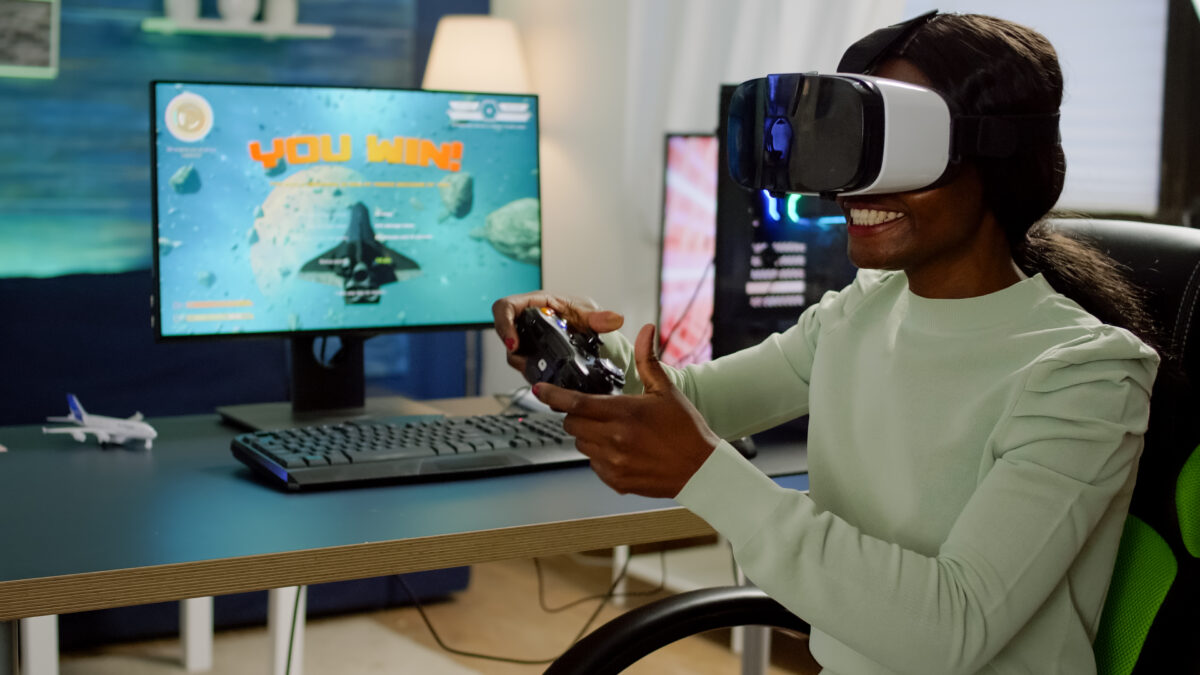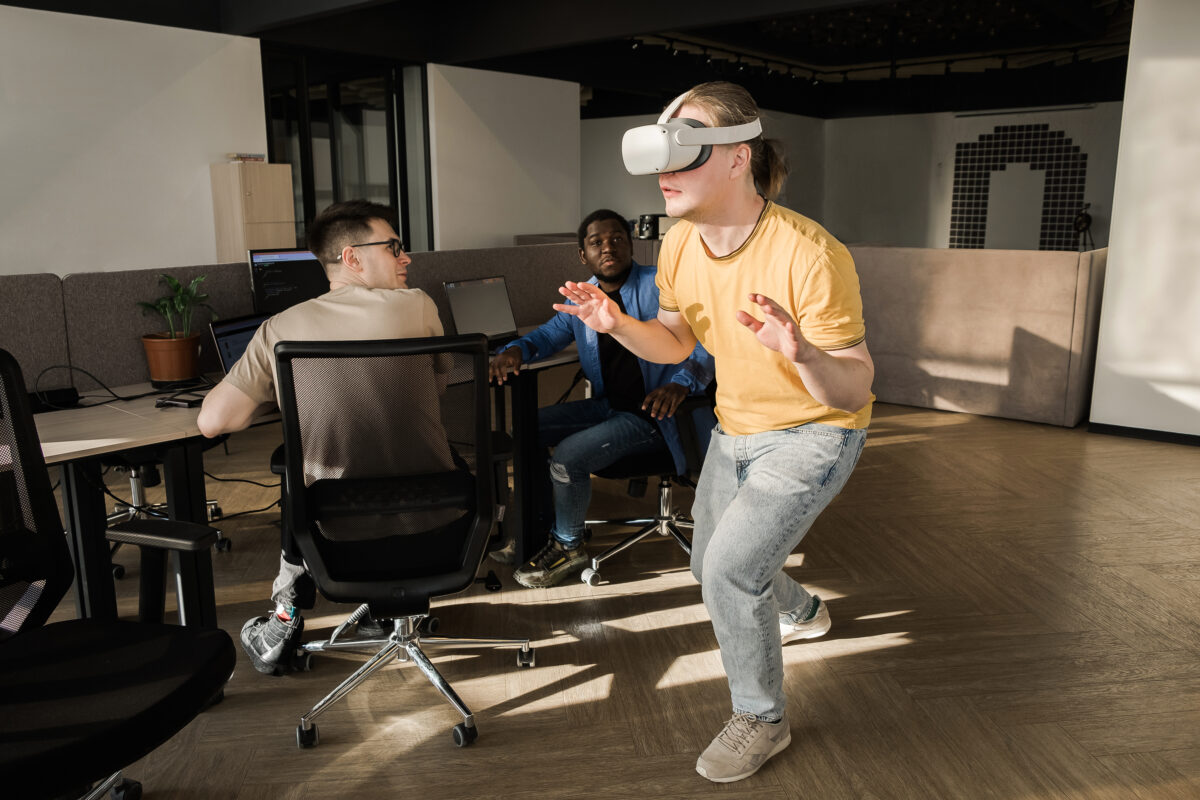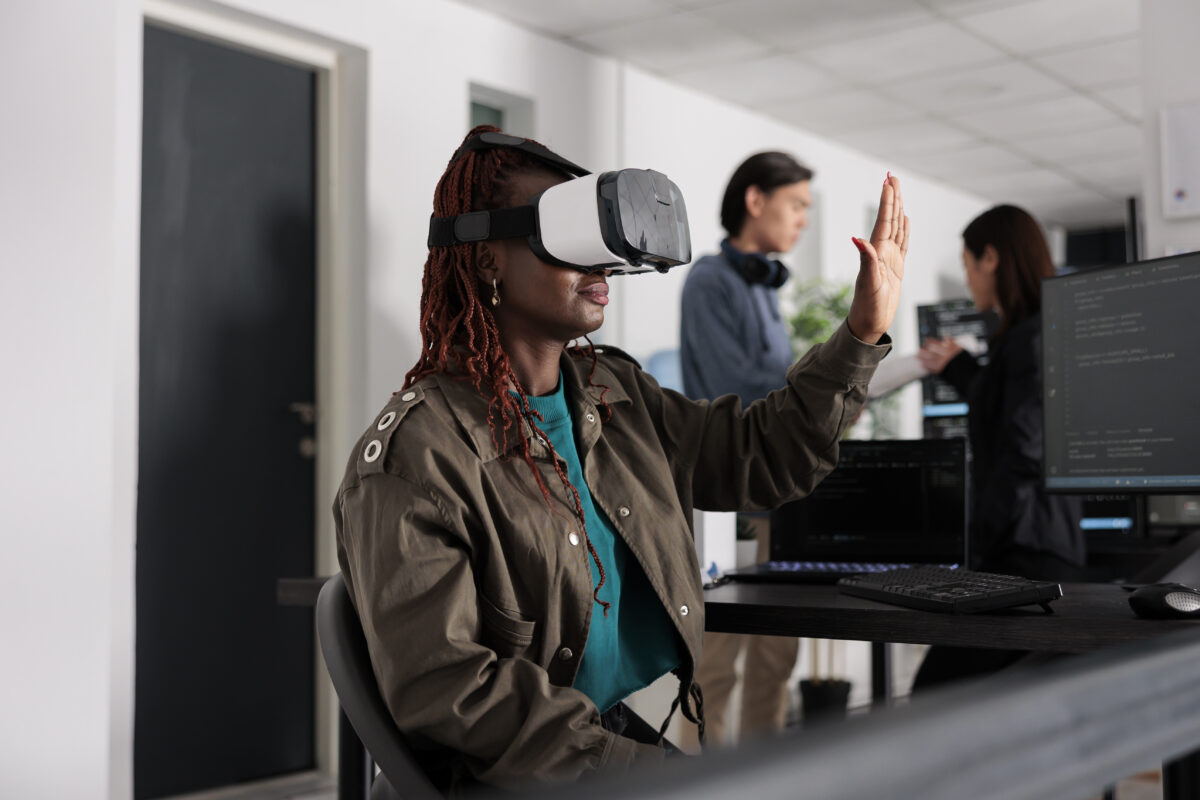 •
•
Near the beginning of the year, I took the plunge into virtual reality by buying the Meta Quest 3. This wasn’t a completely spontaneous decision – I had borrowed a Meta Quest 2 from a friend a while back, and honestly, it was a lot more fun than I had been expecting. The immersion, the interactive experiences and the thrill of VR gaming made me realize I wanted to explore it further. So, when I saw the Quest 3 hit the market, it felt like the perfect time to take the next step.
Fast-forward a few months, and I’ve spent plenty of time exploring what the Quest 3 has to offer not only to gamers like myself, but to advertisers. This accessible version of VR is a product of a data-loving social media company, so obviously there is more than games at play here.
We know, for example, that Meta is collecting anonymous data about user behavior that could have massive marketing implications for ad targeting, contextual advertising and immersive brand experiences. And the lower price point gives the tech potential for the kind of popularity that could produce incredibly precise data and more accurate insights.
Gaming Experience and Implications for the Marketing Game



When I unboxed the Meta Quest 3, I was immediately impressed by the packaging. It felt premium –almost like unwrapping an Apple product. The attention to detail was clear right from the start. Even holding the headset in my hands for the first time, it felt solid and thoughtfully designed.
One of the first games I picked up for the Meta Quest 3 was Beat Saber. If you’re unfamiliar with it, Beat Saber is a rhythm-based game where you slice through blocks in time with music, all while wielding lightsabers. The gameplay is deceptively simple but incredibly addictive.

While I’m not exactly a pro at rhythm games, I’ve been pushing myself to try harder difficulties. I’ve found it to be a surprisingly good workout, and the fast-paced action gets the heart rate up. There’s something about the challenge of keeping up with the beat and smashing those blocks that keeps me coming back for more. It’s also very cool that you can get songs from popular artists in addition to the great original soundtrack.
Meanwhile, the data could help advertisers identify demographic fitness habits, music preferences and even lifestyle patterns like where and when users spend downtime. This could translate to more relevant ads across the Metaverse for Quest users and non-users alike.
The second game I picked up was Moss, which quickly became one of my favorite VR experiences. Moss is an action-adventure game where you play as Quill, a tiny but brave mouse on a quest to save her world. What I love most about this game is how it blends puzzle-solving with action, and the sense of being an active participant in Quill’s journey.

One of the most delightful surprises for me was when Quill gave me a high five after I solved a particularly tricky puzzle. It sounds small, but it genuinely made me smile and feel connected to the character. The relationship between you and Quill feels more intimate in VR, and little moments like that stand out, adding to the charm of the game.
These kinds of mind games could potentially provide advertisers with a deep dive into emotional response – how the user reacts to the in-game experience and what types of content might resonate with them elsewhere even if not directly related to puzzles. For example, my gameplay might reveal my natural curiosity or a penchant for exploration, thus fueling delivery of travel-related ads on Facebook and Instagram.
I’ve also dabbled in a few other games that have been a lot of fun. SUPERHOT VR is a unique game where time only moves when you do, making every moment feel like a slow-motion action movie – The Matrix easily comes to mind. Asgard’s Wrath II is an epic role-playing game steeped in Norse and Egyptian mythology, offering stunning visuals and immersive combat – definitely a time suck if you’re into deep adventure games. Pistol Whip is an adrenaline-fueled, rhythm-based shooter that gets your heart racing as you blast your way through cinematic levels.
We don’t need Meta to tell us that storytelling is a critical element in advertising and this might be the purest form of it. However, these role-playing titles once again act like a virtual focus group where the players’ reactions to the situations they encounter provide deeper insight into future behavior.
New Capabilities for Creators



There are tons of other experiences available that I haven’t played with much or had a use for yet, so even almost a year into owning the Quest 3, I still feel like I’ve barely scratched the surface. It’s worth mentioning there is tons of potential for content creators who now have a seemingly limitless storytelling tool. For example, I’ve “attended” a couple of concerts where I was able to fly around the space and feel like I was either in the crowd or up on stage with the band. You can also load up movies or YouTube videos and watch them in a virtual theater with a giant screen.
There are interactive experiences that can actually improve your skills in real life. I know you can link the headset to your computer and set up a virtual desktop, where you can create and rearrange multiple displays in a 3D space. I’ve even seen people using specific apps to do 3D modeling or interior design projects, using their hands to sculpt interesting shapes and place virtual furniture inside their rooms. It seems there’s still so much more to discover!

My personal experience with the Meta Quest 3 has been extremely enjoyable and the potential for advertisers is intriguing. Whether you’re looking for a workout, a deep adventure, an app to improve your workflow, or just something casual to unwind with, it’s a solid piece of tech that brings VR to life in a way that’s both fun and immersive.
While people are understandably cautious about privacy, the data appears to be most beneficial to more precisely connecting with broader audiences as opposed to pinpointing users individually. So, this is less about figuring out what gamers like and more about how it will connect with people like them demographically speaking. Advertising is part art and part science, so whatever scientific data Meta is collecting may just help get the right creative to the right people more efficiently. I know first-hand that the gaming options are vast and I would think the marketing potential will only grow as well. We’ll see!
 About The Author
About The Author
Sean brings a true passion for all things design to ABC. He elevates his expertise in typography, color and texture in every piece he creates for clients.
He has a varied background that has earned him managerial and senior status in previous positions. As a member of the ABC team, the Rochester Institute of Technology grad is our go-to for projects of all kinds and sizes as we entrust his expert eye with everything from print pieces to digital design.
Sean was drawn to working with a close, collaborative group of people that are passionate and full of great ideas when he decided to join ABC.